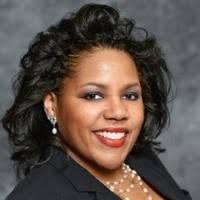How to Hire Your First Procurement Executive – Nakita Gates
This interview is taken from an episode of the Spend Culture Stories podcast. In this episode, executive recruitment expert Nakita Gates shares her best practices and insights on finding the right procurement leader for your organization, and what makes a strong candidate stand out amongst the rest.
How to Hire Your First Procurement Executive
Nakita Gates is the Principal Partner of Executive Search Recruit, a boutique recruitment firm with a specialization in Manufacturing and Private Equity. She is an executive recruiter for world-class leaders in operations, supply chain, and human resources.
In this episode, executive recruitment expert Nakita Gates shares her best practices and insights on finding the right procurement leader for your organization, and what makes a strong candidate stand out amongst the rest.

Speakers: Nakita Gates, Principal Partner, Executive Search Recruit
Listen to the Episode Here:
Listen to Spend Culture: Stories of CFOs and Company Culture
Notable Quotes:
Why is the role of procurement so important today?
The position is important – very important. Companies spend billions of dollars on direct needs and indirect needs to manufacture their product. And in order to manufacture products, what you are spending is money. And if you’re talking about millions of dollars and billions of dollars, that money can be managed strategically – where you can potentially save a lot of dollars. If you’re going global for example, you’re finding the best supplier. For example, this big consulting firm created this seven-step strategic sourcing process, and they use those purchasing steps to lower costs to find savings.
And these guys and girls are those procurement professionals who are behind these goals and are driving the initiatives. How much savings did we save on our spending? How can we get better deals from suppliers? Those are the key questions procurement leaders ask.
Do you think it’s difficult for companies to hire for this role? How long does it normally take to hire say, a chief procurement officer or a procurement director?
I think it absolutely can be difficult because the position has evolved, and internal recruiters aren’t savvy on the new requirements – specifically the strategic requirements. These people have to come in with finance degrees, MBA or engineering degrees. They’re normally really smart people. So if you’re going through an internal recruiter and it’s a difficult position to fill, and their technical skills are very specific, it’s going to be a while to find that candidate. You’re not going to be able to just post it and sit there and wait on the candidate to come to you, which is what the recruiter does. You might need to be engaging in an external search firm like myself. Our goal and commitment is to get that person in the seat in 90 days.
So we are talking our clients through the process. Give us three weeks to go outsource, define the quality of candidates, call them, get their resumes, interview them, send them to you, then you look through it. So let’s say three weeks.
We’d like the interview process to move as quickly as possible because if you look at really good people, they’re not going to be sitting there waiting on you to call them back for another interview. The interview process itself could take three to six weeks, but we don’t like it to be more than that.
Once everyone’s interviewed and they want to go to the offer stage, it takes about a week to prepare the offer. We give the candidate not more than three days to accept the offer, and then we want to have them in the seat as soon as possible, normally the day after. You don’t want the candidate sitting out there longer than two weeks after they give their two weeks notice to start. So three months. That’s a commitment.
It really varies depending on the company, but there are a few ranges when it comes to seniority. Here are some rough numbers:
- Procurement Managers: $105k – $135k base with a potential of bonus.
- Procurement Director: $150k – $160k base, with a potential of 20-25% bonus.
- VP Procurement/Chief Procurement Officers: $190k – $300k base, with the potential of 30-50% bonus.
How can a procurement candidate really make their resume stand out amongst the rest? What are some of the best practices and examples you’ve seen in your career?
Sure. So if I’m looking at entry-level up to a CPO, education is going to be important. They are big on education now. Finance, MBA, or engineering degrees for seniors are quite common. If you can show progression and that you’ve progressed in your career and you have good tenure in your past roles, that’s also really important.Procurement certifications can absolutely be a big bonus. For example, if you’ve got your CSCP, (which is certified supply chain professional) or you’ve got your CPP (certified procurement professional). In your regional areas, there are also associations like Institute for Supply Chain Management, which offers these certifications and good networking for entry-level people.
What are the fundamental differences between those specialist type roles and leadership roles? How can someone move up in their procurement career?
The specialist is like a liaison and are not required to have degrees. They are not in a hundred thousand dollars on base salary – they’re probably about fifty thousand starting. They create purchase orders, receive purchase orders, and then they process returns in the system and anything in between. Normally they make local buying decisions, so they have a lower budget. They also deal with smaller types of spend such as office supplies or discretionary spend. For example, like you ran out of paper. They prepare, maintain and review purchasing files, reports, and pricing lists. They are individual contributors. That’s a specialist.
What makes a managerial or leadership role different is that they direct and oversee millions or billions of procurement spend. That’s their responsibility. They lead and manage all aspects of the strategy. This includes best practices and execution for the spend across the company, which could be domestically or globally. They could manage a team globally and domestically. They are part of the leadership team and integral in leading and driving a number of process improvement strategies and re-engineering efforts across the company.
In order to move up in their careers, procurement leaders really need good influencing skills and negotiation. They have to engage influence stakeholders externally and internally. They look for someone who’s a problem solver with a consultant’s ability and familiarity with tools and certifications in procurement. As mentioned earlier, Lean Six Sigma tools are very valuable, extensive experience with product lifecycle management, and strong Microsoft Office skills.
So you think that someone’s network is highly beneficial when they’re first starting out for entry-level?
Absolutely. If they are just out of university, I always encourage them to go to the career placement office for opportunities. This is because corporations have budget annually to recruit top students at the university. That’s the first place I send them. And then I want to hear why is it not working? Because it should work. I’ve been to those universities. I’ve had to recruit for clients with those universities. I know that they’re there – those are my entry level ones.Those professionals who have had two to three years of experience definitely want to stay connected to the industry associations. And from there, you definitely want to have career goals. You need to map out where you want to go so that you can follow that plan, and start planning and preparing. Having a clear action plan will get the doors open for you, as well as having true passion for what you do. Why you’re doing it is key.
About the Podcast:
Your company culture might attract talent, but your Spend Culture will make or break your company. The Spend Culture Stories podcast helps finance and operations leaders learn the tactics, strategies, and processes to build a proactive Spend Culture.
In this podcast, we have human conversations about the messy and sometimes hilarious stories that happen when people, organizations, and money meet. Learn how to pick the right tools, implement the most efficient processes, and how to develop the right people to transform the Spend Culture of your organization for the better.
Listen to Spend Culture: Stories of CFOs and Company Culture

What are the salary benchmarks for the key procurement leadership roles? How does it compare when it comes to being a procurement manager, director, or a C-Suite like a Chief Procurement Officer?